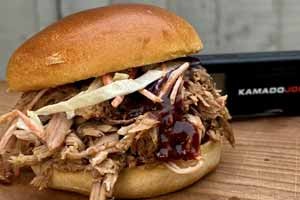Easy, tender BBQ pulled pork, loaded into buns with coleslaw and BBQ sauce.
How to Perfectly Preserve Meat Using Your Freezer
We are all trying to limit the amount that we go to the shops these days, so it’s useful to know how we can make our food last longer. Freezing is a great way to do this; there are however some key rules that we must follow to stay safe and to ensure that we still get to enjoy the best quality possible.
Kate Hall is the Founder of The Full Freezer. She helps people to reduce their food waste and cook from scratch more by learning how to use their freezers more effectively.
Here, she tells us what we need to know when preserving our meat by freezing.
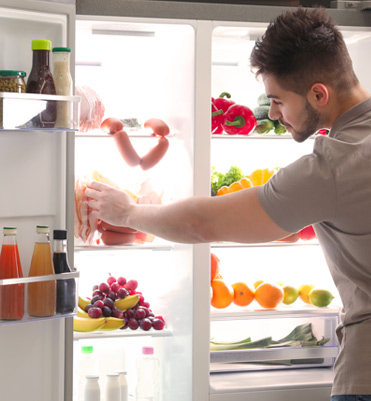
Before you freeze anything
There are several factors that are vital to successfully home freezing meat.
First, you need to ensure that your freezer is actually cold enough; it needs to be at least -18°C.
Second, you need to make sure that the meat has been correctly handled prior to freezing. If you have stored your meat in a fridge that isn’t cold enough (it should be 0-5°C) then the quality will have deteriorated, and it most likely will no longer be safe to eat, let alone freeze.
Also, whilst you can freeze meat right up until the Use by Date, it is advisable to freeze it as soon as possible after purchase to maximise quality.
The final factor is to ensure that all meat is frozen well-wrapped, in usable portions to protect it from freezer burn.
What is freezer burn
Freezer burn is caused by a loss of moisture when ice crystals migrate to the surface of your food and eventually to the coldest part of your freezer, leaving patches of dehydration. Logically, it affects foods with higher water content the most, and meat is very susceptible.
Freezer burnt meat will often look shrivelled or discoloured when affected and may even be covered in ice crystals.
Whilst many people would discard freezer burnt food for fears that it is unsafe, it is actually perfectly safe to eat. It will however affect the quality of the food, so it is a good idea to take precautions to prevent it.
How can freezer burn be prevented?
Vacuum sealing is the most effective way to protect foods such as meat against freezer burn. By removing the air from the package, the ice crystals have nowhere to migrate, locking the moisture into your food.
If you do not have a vacuum sealer, it is possible to achieve a similar effect using a freezer bag, straw and a dish of water. Simply put the meat into your bag, insert your straw in one corner, and do the seal up all the way across up to the straw.
Submerge it in the water, pushing all of the air out of the bag. Be careful not to submerge the corner with the straw in it. Once you have removed as much air as possible, slide the straw out and seal your bag quickly, dry it off and pop it in the freezer.
Anything else important to know about freezing?
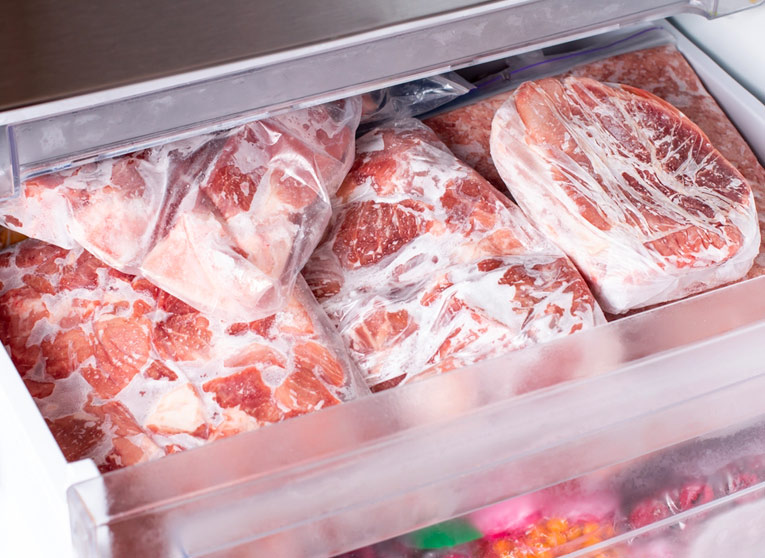
To preserve the quality of your meat, you want to freeze it as quickly as possible. This is because when food is frozen slowly, larger ice crystals form, damaging the tissues and cells of the meat and greater affecting the quality.
Most freezers will have a ‘fast freeze’ function to enable this, so it is worth grabbing your freezer instructions and getting to grips with how yours works!
How long can meat be kept in the freezer?
Technically, meat can be kept frozen indefinitely, however, the longer that you store it the more the quality will deteriorate.
It is generally recommended that large cuts of meat should not be stored for longer than twelve months and smaller pieces for around four months.
Sliced meats such as bacon are best used within one month.
How to defrost for maximise quality?
Meat should be defrosted in the bottom of your fridge, in a covered dish to avoid cross-contamination with other foods.
This keeps it at a low temperature and stops any bad bacteria from developing whilst the food defrosts.
It is also thought that this method of ‘slow thawing’ allows more moisture from the melting ice crystals to reabsorb into the food.
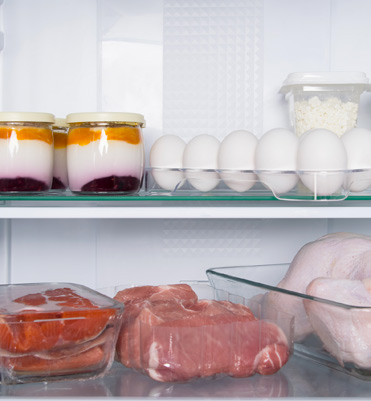
"The Thermapen has become a vital part of my kit in the kitchen. Not only has it stopped us overcooking meat, but it also gives me the reassurance I need that dishes are fully cooked through and safe to eat - particularly if they are being reheated from the freezer."
Related posts
 How to Cook Christmas Turkey on a BBQ
How to Cook Christmas Turkey on a BBQ
 5 Best Cooking Christmas Gifts 2025
5 Best Cooking Christmas Gifts 2025
 Mike Tomkins' Ultimate Beef Wellington
Mike Tomkins' Ultimate Beef Wellington
 Christmas Marmalade Glazed Gammon
Christmas Marmalade Glazed Gammon
 How Long to Rest a Turkey
How Long to Rest a Turkey
Search
Categories
- Baking (35)
- BBQ (85)
- Autumn (14)
- Cheap Eats (9)
- Sweet Treats (38)
- Tips, Advice & Info (78)
- Christmas (36)
- Drinks (2)
- Thermapen Father's Day Recipes (18)
- Team Temperature (28)
- Date Night (37)
- Celebrations (20)
- Family & Kids (10)
- Fish (21)
- Low & Slow (13)
- Meat (142) click
-
Chefs (132)
click
- Kenny Tutt (16)
- Richard Holden (16)
- Barbechoo (7)
- Only Slaggin (1)
- SoSaSe Chocolat (1)
- Genevieve Taylor (5)
- Becky Excell (2)
- Charlotte Stirling-Reed (3)
- The Smokin Elk (13)
- Marcus Bawdon (2)
- Thermapen Chef (25)
- Edd Kimber (2)
- Humble Plates (7)
- Simon May (4)
- The Hedgecombers (3)
- Billy & Jack (4)
- Perfectly Preserved (3)
- Mike Tomkins (20)
- DJ BBQ (2)
- Nick Nairn (4)
- BBQ Jake (1)
- Air Fryer (9)
- RFX (6)
- Featured (3)
Latest recipes
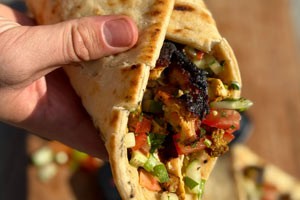
Rotisserie-cooked chicken shawarma, coated in a punchy yoghurt marinade. Pile into flatbreads with salad
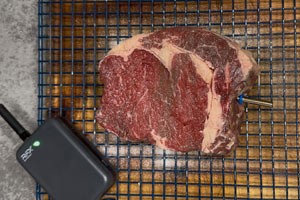
Ribeye is an amazing, flavour-packed cut of beef. Learn how to cook ribeye steak medium rare using the reverse sear...

Elky Whittaker, aka The Smokin’ Elk, began barbecuing as a hobby 10 years ago. Today, he has 262k Instagram followers...
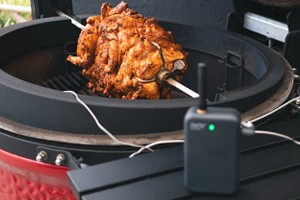
Juicy BBQ chicken shawarma recipe with homemade flatbreads and garlic sauce.
Archive
Popular Recipes
